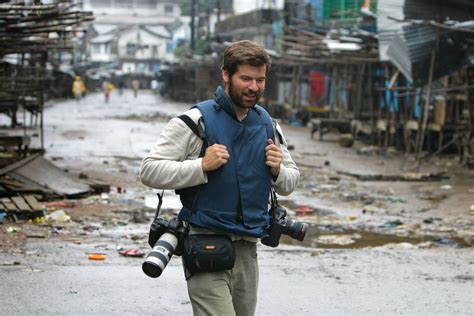A Quote by Klaus Schwab
The Fourth Industrial Revolution can compromise humanity's traditional sources of meaning - work, community, family, and identity - or it can lift humanity into a new collective and moral consciousness based on a sense of shared destiny. The choice is ours.
Related Quotes
Part of people's concern is just the sense that around the world the old order isn't holding and we're not quite yet to where we need to be in terms of a new order that's based on a different set of principles, that's based on a sense of common humanity, that's based on economies that work for all people.
I'm fascinated by the period that goes from the Industrial Revolution to right after World War II. There's something about that period that's epic and tragic. There's a point after the industrial period where it seems like humanity's finally going to make it right. There were advances in medicine and technology and education. People are going to be able to live longer lives; literacy is starting to spread. It seemed like finally, after centuries of toiling and misery, that humanity was going to get to a better stage. And then what happens is precisely the contrary. Humanity betrays itself.
The tenets of my cultural teachings are rooted in our commitment to lift up every community member so that no one is left behind. Work and food were shared equally. Through our commitment to community, we care about children, even when they aren't ours, and we want our old folks, and yours, to live their last days in dignity and comfort.
Humanity looks upon Jesus the Nazarene as a poor-born Who suffered misery and humiliation with all of the weak. And He is pitied, for Humanity believes He was crucified painfully. . . . And all that Humanity offers to Him is crying and wailing and lamentation. For centuries Humanity has been worshiping weakness in the person of the Savior. The Nazarene was not weak! He was strong and is strong! But the people refuse to heed the true meaning of strength.
There can be only one permanent revolution - a moral one; the regeneration of the inner man. How is this revolution to take place? Nobody knows how it will take place in humanity, but every man feels it clearly in himself. And yet in our world everybody thinks of changing humanity, and nobody thinks of changing himself.




































